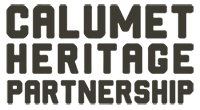Collections and Donations Policy for the Calumet Industrial Heritage Project
Calumet Heritage Partnership
Collections and Donations Policy for the Calumet Industrial Heritage Project
COLLECTION POLICIES
The policies created for the Calumet Industrial History Project (CIHP, or the Project) constitute a system of guidelines and conditions for acquiring, maintaining, and deaccessioning materials for the collection of the Calumet Heritage Partnership (CHP). Specific procedures, when they differ with procedures already established by the Illinois Historic Preservation Agency (IHPA) and the Pullman State Historic Site (PSHS), are included with the specific policy. This policy is intended to reflect the scope of the current collection of the CHP. CHP will create additional collection and management policies as needed, depending on future needs
These policies may also be subject to revision as new techniques are developed. New policies or revisions to these policies and procedures will be approved by the CHP Board of Directors before being included in this document.
I. ACQUISITIONS: GENERAL GUIDELINES
The acquisition of materials or objects must be made in accord with policies and conditions outlined herein.
a) Who May Acquire Materials
The CHP Board of Directors or their specific designees are the sole members authorized to acquire materials on behalf of the organization.
b) How Materials May Be Acquired
Materials or objects may be acquired by purchase, bequest, gift, or transfer.
c) Priorities
Only those materials or objects fitting one or more of the categories arranged below in priority order will be acquired:
1. Records and artifacts original to the Illinois Calumet Region’s steel industry, most especially for ACME Steel & its predecessors and other steel industries in the region.
2. Materials and objects historically appropriate for interpreting the Illinois Calumet Region’s steel and other manufacturing industries.
3. Materials and objects for exhibit and interpretive use.
4. Records and materials for study/teaching.
5. Models, replicas, and reproductions for study or interpretive use.
d) Conditions
Materials must meet the following conditions prior to acquisition:
1. CHP and its project and collection loan partners must be able to care for the materials or objects in terms of adequate storage, protection, security, and preservation in keeping with professionally accepted standards.
2. The materials must be historically appropriate for inclusion in the collection.
3. The materials or object(s) must be in reasonably good condition. Heavy industry objects must be in such condition as to not compromise the health, safety, and welfare of employees of PSHS, CHP or PSHS volunteers, or the general public.
4. The materials or objects must be documented, if possible, as to provenance.
5. The donor or seller must have clear legal title and may be required to demonstrate that title.
6. Acquisitions must be unconditional. That is, there must be no restriction of any kind as to the use, display, storage, conservation, or eventual disposition of the object. Exceptions to this policy will only be considered in rare instances by the CHP Board of Directors.
7. Heavy industry artifacts and objects requiring transport and storage at the Pullman State Historic Site will only be acquired in consultation with representatives of PSHS and neutral industry professionals.
8. No materials or objects that are known to have been illegally collected will be accepted or acquired.
9. Materials accepted for the collection shall not be cleaned, subjected to solvents, painted, or otherwise modified prior to delivery to CHP without consultation with preservation professionals at PSHS.
e) Acquisitions Committee
An Acquisitions Committee shall be appointed by the CHP Board of Directors to assist in collection and acquisition matters. The committee will meet on an as-needed basis. Appendix A sets out suggested questions to consider when recommending the acquisition of materials for the CHP.
II. ACCESSIONING, DOCUMENTATION, AND MAINTENANCE
All acquisitions must be accompanied by appropriate documentation as described below in order to properly accession them into the CHP collection.
1. A Deed of Gift setting forth an accurate description of the materials or objects and the precise conditions of ownership transfer must accompany all donations, gifts, or bequests.
2. A bill of sale or invoice must accompany all purchases by CHP for the collection.
3. Any materials or objects that require transport to the PSHS will include information on estimated moving or transport fees.
4. Transfers between project partners must be documented in accord with procedures outlined herein.
a) Appraisals
No person employed by or a family member of PSHS, nor any CHP director, volunteer, member, or family member thereof will perform financial appraisals of objects or materials relating to the CHP or project partner collections. This includes items being considered for acquisition for tax or insurance or any other purpose. Potential donors should consult licensed outside appraisers.
b) Records
Records of acquisitions, transfers, deaccessions, loans, nonaccessioned artifacts, and collection access/users shall be made and processed in a timely fashion. A designated site Registrar is responsible for maintaining records. The PSHS Curator will maintain a duplicate set of CHP accession records.
c) Unclear Legal Title or Copyright
CHP and PSHS will make every reasonable effort to determine from donors or families of donors the copyright or proper legal title of materials where necessary.
d) Maintenance and Inventory
Archival materials will be maintained in cooperation with PSHS under an annually-renewable loan agreement. CHP, in collaboration with CIHP partners, will conduct a periodic inventory of CHP-owned materials.
III. DEACCESSION CONDITIONS
Deaccessions must conform to the following conditions:
1. Materials or objects may be considered for deaccessioning if they have been damaged beyond repair or if repair costs would exceed the value of the materials or objects.
2. Materials or objects may be considered for deaccessioning if they have been missing for at least seven years and the loss has been documented by CHP inventories.
3. Materials or objects original to the initial collection (i.e., ACME Steel materials) will be deaccessioned only under extraordinary circumstances.
4. Objects or materials will not be considered for deaccession until possibilities for transfer to another project partner or a more appropriate site or facility have been eliminated.
5. There must be no evidence that materials to be deaccessioned were acquired by the CHP with any restriction or condition preventing deaccession.
6. Deaccessioned materials or objects may be offered for sale, public or private, only after approval of the CHP Board of Directors and in consultation with project partners.
IV. ACCESS TO THE COLLECTIONS
CHP and PSHS encourages the use of the Calumet Industrial Heritage Project collections for the advancement of knowledge, and therefore will make them accessible to serious students and research scholars.
1. Access to the collections is secondary to their preservation.
2. All applicants for access must complete an Application for Examination/Photography of Artifacts Form stating their needs and research goals.
3. Authorization for access will be at the discretion of the PSHS Superintendant or Curator, but refusal may be appealed to the CHP Board of Directors.
4. No item from the collection may be removed from the premises without permission, except as outlined in the Reproductions Policy below.
5. Materials will be available for examination and photography based on the condition of the item and availability of other sources.
6. All photographs or reproductions for publication require permission and must have an attribution line recognizing the Calumet Heritage Partnership and the Calumet Industrial Heritage Project.
V. REPRODUCTION OF MATERIALS
Facsimile reproductions must be made in accord with procedures and conditions outlined below.
1. Facsimile reproductions of materials owned by the CHP may be made for interpretive use, by outside institutions for educational purposes, or in response to legal subpoena.
2. Materials may not be removed from the site for reproduction purposes unless accompanied by an authorized CHP volunteer and with the permission of the PSHS curator.
3. Materials or objects may not be dismantled in any manner or subjected to technical analysis, such as removal of scrapings or samples, for the purpose of reproduction.
4. Reproductions of materials from the CHP collection to be sold for profit will be done only under a formal licensing agreement.
5. The condition of the materials to be reproduced must be such that they will not be damaged by the process.
6. Applicants must complete the Request for Reproduction Request Form provided by the PSHS.
7. All reproduced materials must be marked ‘reproduction.’
8. The PSHS curator reserves the right to see and approve the quality of the reproduction.
9. An attribution line citing the Calumet Heritage Partnership and the Calumet Industrial Heritage Project must accompany all exhibits or publications incorporating reproductions of CHP-owned items.
VI. EXCEPTIONS
Exceptions to these policies may be made in specific extraordinary cases. The CHP Board of Directors is authorized to permit such exceptions for the best interests of the collection. All such exceptions must be documented in writing.
FINAL as passed 6/21/2007

